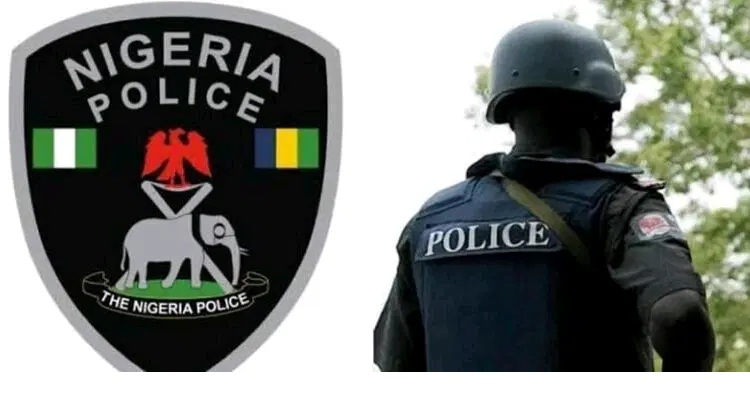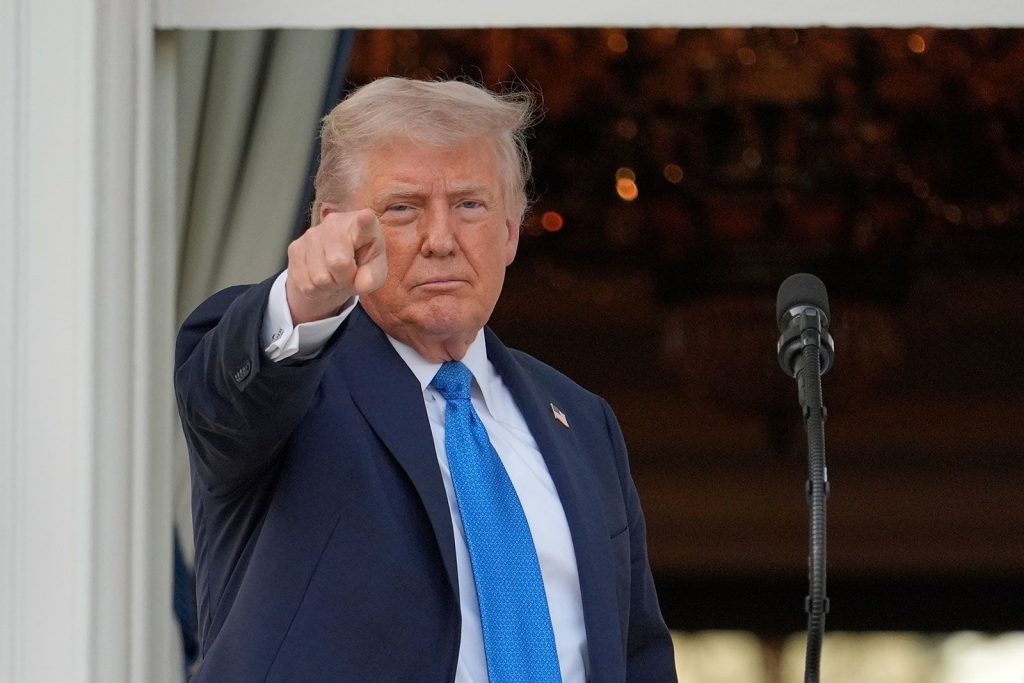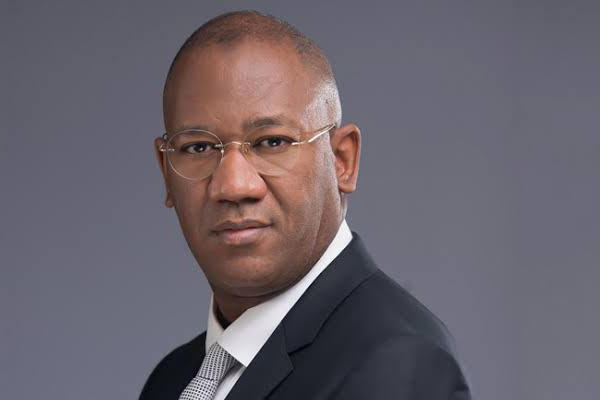Analysis
Nigeria’s bloodiest coup led by Major Gideon Orkar: 35 years after
By Adesoji Omosebi
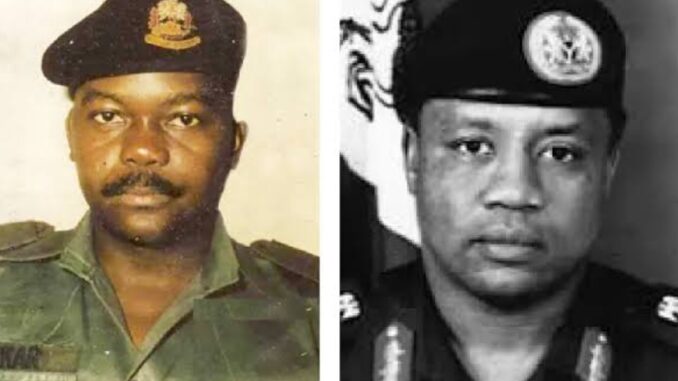
It was on a Sunday morning, 35 years ago, on April 22, 1990 when we woke up to hear martial music on our radio. A bloodiest military coup spearheaded by unassuming gentleman, a Military Officer, Major Gideon Orkar took place at the Dodan Barracks, Obalende, Lagos.
They came to forcefully took over power from President General Ibrahim Badamasi Babangida (Rtd) popularly referred to as IBB who planned to become a life President.
A group of young military officers mainly from the Middle-Belt States and the South came together to plan the bloodiest coup in the history of Nigeria that failed. The coup was allegedly sponsored by a businessman guru, Chief Great Ogboru from Delta State.
The Gideon Orkar’s speech was repeated on the radio until the then Lagos State Military Governor, Colonel Alagbe Rasaki came on air through Radio Lagos stammering to make a broadcast which was later supported by General Sani Abacha”s nationwide speech that finally foiled the coup.
From Major Gideon Orkar’s speech 35 years ago one will realise that all that he had said had all come to pass. It is still part of what we are witnessing till date.
Their youthful exuberance of excising some states from the North same day of the coup made other military officers who supported the coup from the North to back out.
Little wonder when he was being led to the execution site by a junior Military Officer who pushed him,
Orkar made a statement, he said, “it is for people like you I am dying today.”
Orkar is dead with scores of others, has Nigerian State addressed their grievances? No.
Okar was executed along with others on July 27, 1990 at the Kirikiri Maximum Prison, Lagos.
What Orkar staged a coup for is still prevalent in Nigeria, in fact, Nigeria has never had it so bad with the spilling of innocent blood in every nook and cranny of the nation with no hope of surviving the onslaught.
Is Nigeria matured for democracy???
MAJOR GIDEON ORKAR’S SPEECH 35 YEAR AGO (APRIL 22, 1990)
“Fellow Nigerian Citizens,
On behalf of the patriotic and well-meaning peoples of the Middle Belt and the Southern parts of this country, I , Major Gideon Orkar, wish to happily inform you of the successful ousting of the dictatorial, corrupt, drug baronish, evil man, deceitful, homo-sexually-self-centred, prodigalistic, un-patriotic administration of General Ibrahim Badamosi Babangida.
We have equally commenced their trials for unabated corruption, mismanagement of national economy, the murders of Dele Giwa, Major-General Mamman Vasta, with other officers as there was no attempted coup but mere intentions that were yet to materialize and other Human Rights violations.
The National Guard already in its formative stage is disbanded with immediate effect. Decrees Number 2 and 46 are hereby abrogated.
We wish to emphasize that this is not just another coup but a well-conceived coup, planned and executed revolution for the marginalized, oppressed and enslaved peoples of the Middle Belt and the South with a view to freeing ourselves and children yet unborn from eternal slavery and colonization by a clique of this country.
Our history is replete with numerous and uncontrollable instances of callous and insensitive dominatory repressive intrigues by those who think it is their birthright to dominate till eternity the political and economic privileges of this great country to the exclusion of the people of the Middle Belt and the South.
They have almost succeeded in subjugating the Middle Belt and making them voiceless and now extending same to the South.
It is our unflinching belief that this quest for domination, oppression and marginalization is against the wish of God and therefore, must be resisted with the vehemence.
Anything that has a beginning must have an end. It will also suffice here to state that all Nigerians without skeleton in their cupboards need not to be afraid of this change.
However, those with skeleton in their cupboards have all reasons to fear, because the time of reckoning has come.
For the avoidance of doubt, we wish to state the three primary reasons why we have decided to oust the satanic Babangida administration.
The reasons are as follows:
(a) To stop Babangida’s desire to cunningly, install himself as Nigeria’s life president at all costs and by so doing, slowpoke the progress of this country for life. In order to be able to achieve this undesirable goals of his, he has evidently started destroying those groups and sections he perceived as being able to question his desires.
Examples of groups already neutralized, pitched against one another or completely destroyed are:
(1) The Sokoto caliphate by installing an unwanted Sultan to cause division within the hitherto strong Sokoto caliphate.
(2) The destruction of the peoples of Plateau State, especially the Lantang people, as a balancing force in the body politics of this country.
(3) The buying of the Press by generous monetary favors and the usage of State Security Service, SSS, as a tool of terror.
(4) The intent to cow the students by the promulgation of the draconian Decree Number 47.
(5) The cowing of the University Teaching and Non-Teaching Staff by an intended massive purge, using the 150 million dollar loan as the necessitating factor.
(6) Deliberately withholding funds to the Armed Forces to make them ineffective and also crowning his diabolical scheme through the intended retrenchment of more than half of the members of the Armed Forces.
Other pointers that give credence to his desire to become a life president against the wishes of the people are:
(1) His appointment of himself as a Minister of Defense, his putting under his direct control the SSS, his deliberate manipulation of the transition programme, his introduction of inconceivable, unrealistic and impossible political options, his recent fraternization with other African leaders that have installed themselves as life presidents and his dogged determination to create a secret force called the National Guard, independent of the armed forces and the police which will be answerable to himself alone, both operationally and administratively.
It is our strong view that this kind of dictatorial desire of Babangida is unacceptable to Nigerians of the 1990’s, and, therefore, must be resisted by all.
Another major reason for the change is the need to stop intrigues, domination and internal colonization of the Nigerian State by the so-called chosen few.
This, in our view, has been and is still responsible for 90 percent of the problems of Nigerians.
This indeed has been the major clog in our wheel of progress.
This clique has an unabated penchant for domination and unrivalled fostering of mediocrity and outright detest for accountability, all put together have been our undoing as a nation.
This will ever remain our threat if not checked immediately. It is strongly believed that without the intrigues perpetrated by this clique and misrule, Nigeria will have in all ways achieved developmental virtues comparable to those in Korea, Taiwan, Brazil, India, and even Japan.
Evidence, therefore, this cancerous dominance has as a factor constituted by a major and unpardonable clog in the wheel of progress of the Nigerian state. It is suffice to mention a few distasteful intrigues engineered by this group of Nigerians in recent past.
These are:
(1) The shabby and dishonorable treatment meted on the longest serving Nigerian General in the person of General Domkat Bali, who in actual fact had given credibility to the Babangida administration.
(2) The wholesale hijacking of Babangida’s administration by the all-powerful clique.
(3) The disgraceful and inexplicable removal of Commodore Ebitu Ukiwe, Professor Tam David-West, Mr. Aret Adams and so on from office.
(4) The now-pervasive and on-going retrenchment of Middle Belt and Southerners from public offices and their instant replacement by the favoured class and their stooges.
(5) The deliberate disruption of the educational culture and retarding its place to suit the favoured class to the detriment of other educational minded parts of this country.
(6) The deliberate impoverishment of the peoples from the Middle Belt and the South, making them working ghosts and feeding on the formulae of 0-1-1- or 0-0-0 while the aristocratic class and their stooges are living in absolute affluence on a daily basis without working for it.
(7) Other countless examples of the exploitative, oppressive, dirty games of intrigues of its class, where people and stooges that can best be described by the fact that even though they contribute very little economically to the well-being of Nigeria, they have over the years served and presided over the supposedly national wealth derived in the main from the Middle Belt and the southern part of this country, while the people from these parts of the country have been completely deprived from benefiting from the resources given to them by God.
The third reason for the change is the need to lay a strong egalitarian foundation for the real democratic take off of the Nigerian state or states as the circumstances may dictate.
In the light of all the above and in recognition of the negativeness of the aforementioned aristocratic factor, the overall progress of the Nigerian state a temporary decision to excise the following states namely, Sokoto, Borno, Katsina, Kano and Bauchi states from the Federal Republic of Nigeria comes into effect immediately until the following conditions are met.
The conditions to be met to necessitate the re-absorption of the aforementioned states are as following:
(a) To install the rightful heir to the Sultanate, Alhaji Maccido, who is the people’s choice.
(b) To send a delegation led by the real and recognized Sultan Alhaji Maccido to the Federal Government to vouch that the feudalistic and aristocratic quest for domination and operation will be a thing of the past and will never be practiced in any part of the Nigeria state.
By the same token, all citizens of the five states already mentioned are temporarily suspended from all public and private offices in Middle Belt and Southern parts of this country until the mentioned conditions above are met.
They are also required to move back to their various states within one week from today.
They will, however, be allowed to return and join the Federal Republic of Nigeria when the stipulated conditions are met.
In the same vein, all citizens of the Middle Belt and the south are required to come back to their various states pending when the so-called all-in-all Nigerians meet the conditions that will ensure a united Nigeria. A word is enough for the wise.
This exercise will not be complete without purging corrupt public officials and recovering their ill-gotten wealth, since the days of the oil boom till date.
Even in these hard times, when Nigerians are dying from hunger, trekking many miles to work for lack of transportation, a few other Nigerians with complete impunity are living in unbelievable affluence both inside and outside the country.
We are extremely determined to recover all ill-gotten wealth back to the public treasury for the use of the masses of our people. You are all advised to remain calm as there is no cause for alarm. We are fully in control of the situation as directed by God. All airports, seaports and borders are closed forthwith.
The former Armed Forces Ruling Council is now disbanded and replaced with National Ruling Council to be chaired by the Head of State with other members being a civilian Vice-Head of State, Service Chiefs, Inspector General of Police, one representative each from NLC, NUJ, NBA, and NANS.
A curfew is hereby imposed from 8 p.m. to 6 a.m. until further notice. All members of the Armed Forces and the Police Forces are hereby confined to their respective barracks.
All unlawful and criminal acts by those attempting to cause chaos will be ruthlessly crushed. Be warned as we are prepared at all costs to defend the new order.
All radio stations are hereby advised to hook on permanently to the National Network programme until further notice.
Long live all true patriots of this great country of ours. May God and Allah through his bountiful mercies bless us all”.
April 22,1990.
Lagos,Nigeria.
MAJOR GIDEON ORKAH
Analysis
EFCC: The Unintended Monster ~ By Basil Odilim
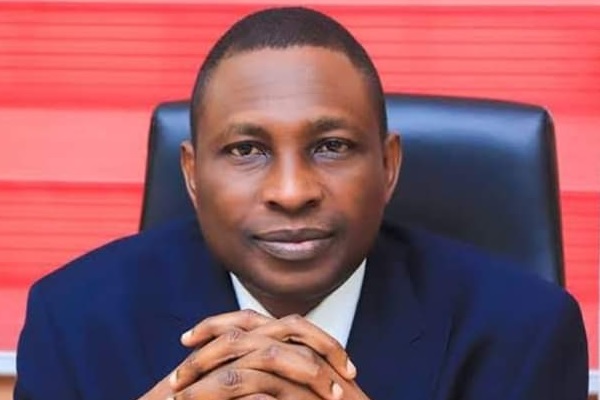
When news broke last week, the operatives of Nigeria’s Economic and Financial Crimes Commission (EFCC) stormed the Olusegun Obasanjo Presidential Library.
My reaction was not shock but recognition. I had seen this pattern before — the sudden spectacle, the images of armed men, the swift headlines — and I knew the uneasy feelings it could leave behind.
I first walked into the EFCC headquarters years ago not as a suspect but as a citizen who believed in its mission. I came with information and resources that I believed could strengthen the fight against corruption.

The author, Basil Odilim Enwegbara
In those early moments, there was optimism — the sense that this was an institution committed to fairness, thoroughness, and results.
But as time passed, that optimism was tested. Processes slowed. Meetings shifted. What I had imagined would be a model of transparency became, to my eyes, more opaque. I had also worked on a public reporting initiative with the EFCC, designed to make petitions traceable by citizens. Over time, that vision for open tracking did not take root in the way I had hoped.
My view of the EFCC began to change. It was not that the institution was incapable of decisive action — quite the opposite. It could act with speed and force when it chose to. But that force seemed, in my perception, unevenly applied. Some matters blazed into the public eye; others dimmed quietly in the shadows.
That is why, when EFCC Chairman Ola Olukoyede recently warned that Nigeria’s real estate sector had become a haven for money laundering, I agreed with the diagnosis.
Anyone who drives through certain high-end districts in Lagos or Abuja can see properties that stand empty, owned on paper, but not in life are priced far beyond the reach of most Nigerians The challenge is not seeing the problem — it is pursuing it with the same intensity in every case, no matter whose name appears on the deeds.
Raids like the one on the Obasanjo Library generate headlines. They display power. But Nigerians have long memories. For every dramatic operation, there are questions about the cases that remain invisible — the files not announced, the investigations never heard of again.
If the EFCC is to be the institution Nigerians need, it must not only fight corruption without fear or favour; it must do so in a way the public can see and trust.
Without that trust, the EFCC risks becoming something the law never intended: a force whose power is remembered more for its theatre than for its justice.
Selective Justice and the Shielding of the Powerful
Go to the EFCC headquarters in Industrial Area, Abuja, and you’ll see some hungry boys arrested for stealing a few hundreds of dollars.
That doesn’t mean that what they did was right. What I’m saying here is that EFCC leaves the big thieves and always goes after petty thieves.
Or how many powerful politicians and influential figures have truly faced prison in Nigeria? The answer is painfully clear: very few, if any.
The harsh reality is that accountability disproportionately targets the vulnerable—the so-called “yahoo boys,” the hungry and desperate youth who often become scapegoats for systemic failure.
Meanwhile, the elites who wield power and influence glide through the cracks of the justice system, shielded by networks of patronage, political alliances, and wealth.
Consider Godwin Emefiele, the former Central Bank Governor. Despite serious allegations and public outcry, he has remained protected within the corridors of power.
His case is emblematic of a broader problem—one where the scales of justice tip heavily in favor of the privileged, while ordinary Nigerians bear the brunt of corruption and abuse.
This selective enforcement not only betrays the principle of equality before the law but corrodes public trust in our institutions. When justice becomes a tool wielded only against the powerless, it fosters cynicism, apathy, and social fragmentation.
True reform demands that the judiciary break free from this pattern of selective justice. No one, regardless of political stature or wealth, should be above the law. For Nigeria to rise and thrive, the law must be applied fairly, transparently, and without fear or favor.
My fight is not just personal—it is a fight for every Nigerian who dreams of a nation where justice is not a privilege but a right.
Truly, if eyes can bleed blood, given what I’ve seen in Nigeria, my eyes should have by now be bleeding blood. Thank God eyes only shed tears.
Analysis
The Caricature Called Nigerian Judiciary: I Discovered Forgery After Court Had Already Accepted It
By Basil Odilim

Cry or laugh — take your pick. But this is what the Nigerian judiciary has been reduced to.
For years, I thought I knew everything that was going on in my own court case. I was there. I was cross-examined. I had lawyers. I followed up.
But it turns out, the most damaging thing happened without my knowledge — and only came to light recently, when I personally obtained and reviewed the Certified True Copy (CTC) of the court proceedings.
I filed my civil suit in 2017. The defendant didn’t respond for over a year. Then, in January 2019, I was cross-examined. It was a strange session.
Their lawyer pulled out a document and claimed I had received it and signed for it. I looked at it and said, “No. I’ve never seen this document, and I never signed it.”
He withdrew it. Then, casually asked me, “How many signatures do you use?” I told him, “Two.” He gave me a blank sheet of paper and asked me to sign both versions. I didn’t know what he was planning to do with it, but I signed.
Unbeknownst to me, that blank sheet — with nothing on it but two fresh examples of my signature — was immediately tendered as an exhibit. The court admitted it.
Still, no defence had been filed at that time. Then, two weeks later, on February 2, 2019, the defendant finally submitted its defence. I didn’t think much of it — until recently, when I finally obtained the full case file and the CTC of the court proceedings.
That’s when the pieces came together — and the forgery revealed itself.
Attached to the defendant’s belated statement of defence was a photocopy of the very document I had denied under oath. But this time, it had my name on it — or at least something resembling it. “Odilim Enwegbaram”.
Not Enwegbara. It was misspelled. Worse, it had been inserted over a visibly tippexed line — the only part of the document with correction fluid.
Then came the signature. It wasn’t quite mine, but close — close enough to raise questions.
That’s when it hit me: they had lifted my signature from the blank sheet I signed in court. They had fabricated the document after the cross-examination, then quietly attached it to their court filings, and waited.
How did the court allow this?
As I read through the CTC, I discovered what really happened during the tendering of that document — something I wasn’t even fully aware of at the time.
When the defence attempted to present the forged document through their witness (DW1), my lawyer raised a strong objection. He cited Sections 88 and 89 of the Evidence Act: a photocopy is not admissible unless the original is lost or destroyed and that loss must be properly established.
The judge asked the obvious question: “Where is the original?”
DW1 said, “It got lost in my office.”
Then the defence counsel stood up — and directly contradicted him. He told the court: “No, the original isn’t lost. The Claimant has it.”
Think about that. One says it’s lost. The other says it’s with me. But the document is a forged photocopy. The original was never produced — likely because it never existed.
Yet, the judge overruled the objection and admitted the document. She said she would decide later how much “weight” to give it. It was marked as an exhibit.
No one questioned the misspelling, the tippex, or the fact that the document was smuggled in after my signatures had been harvested under cross-examination.
Years passed. Then, on June 30, 2025, DW1 was cross-examined again — this time by my new counsel. Under oath, he admitted clearly: “there was no contract between the Defendant and me”
Finally, I thought. The truth has landed.
But when I received the CTC of the judgment on July 28, 2025, that admission was no longer there.
It had been replaced by this sentence: “There is a contract… by signage of the guide.”
That “guide” was the same forged, tippexed document. The one I never signed. The one bearing a spelling of my name I’ve never used. The one cobbled together using signatures I gave on a plain sheet in court — with no context and no warning.
So now, years later, I’m left with a legal judgment based on a document I never saw, never signed, and only discovered through forensic reading of the CTC.
This isn’t just about my case.
This is about how easily the truth can be rewritten in Nigeria’s courtrooms. How the law — and even sworn testimony — can be bent to accommodate fraud. And how a litigant can sit through an entire trial, not knowing that a false record has already been smuggled into evidence.
The lesson is simple: you must be involved. Deeply. Personally. Painfully.
Your lawyer might mean well, but they’re juggling ten other cases. You’re juggling only one — your own. And if you don’t read every document, get every transcript, and demand every record, you may find that the truth of your case has been changed — and nobody told you.
Cry or laugh, depending on which you prefer. But this is what our judiciary has been reduced to.
Winning the Judgment, Losing the Nation
I never planned to immerse myself in the tangled undergrowth of Nigerian jurisprudence. My life’s compass was set toward the frontiers of human possibility — human immortality, cellular neovsis, and the permanent cure for cancer. Yet, here I am, drawn unwillingly into the crumbling temple of justice, because you cannot live in a burning house and pretend the flames belong to someone else.
Is it too late to think deeply about jurisprudence and the public good? No — because when a society loses its moral and legal direction, all other progress becomes an illusion.
Plato was right: “Justice in the life and conduct of the State is possible only as first it resides in the hearts and souls of the citizens.”
Consider Nnamdi Kanu. Kenya’s High Court has already declared his abduction unlawful, inhumane, and a violation of international norms.
Yet in Nigeria, the same case — already decided in another sovereign court — staggers on as if the foreign judgment were a rumour. This is not merely legal defiance; it is judicial terrorism by the state itself.
The corrosion is systemic. Section 174(1)(c) of Nigeria’s 1999 Constitution empowers the Attorney-General to “discontinue at any stage before judgment is delivered any such criminal proceedings instituted or undertaken by him or any other authority or person.”
Section 211(1)(c) mirrors this power for states. Both require, in subsection (3), that the power be exercised in the public interest, in the interest of justice, and to prevent abuse of legal process.
In theory, this is a noble safeguard. In practice, it too often becomes a political escape hatch.
In Anambra State, the Attorney-General moved to terminate criminal proceedings, and the President of the Nigerian Bar Association rushed to defend him, invoking the constitutional imperative while ignoring the political convenience. The law was cited, but the “public interest” — the reason the power exists — was conveniently absent.
Marcus Tullius Cicero wrote: “The foundations of justice are that no one shall suffer wrong; then, that the public good be promoted.”
Justinian defined justice as “the constant and perpetual wish to render every man his due.” By these standards, selective justice is not justice at all — it is politics in robes.
The Nigerian Supreme Court, in _State v. Ilori once described the Attorney-General as “a master unto himself… under no control whatsoever” in exercising these powers. Without moral restraint, such unbridled discretion becomes an instrument of state capture, not state service.
History warns us. Rome began as a republic of laws but rotted into an empire of men when those entrusted with justice served power instead of truth. Nigeria is edging toward that same precipice.
It is not too late to resist. But the clock is not generous. A nation that manipulates justice to suit political ends may win its cases — but it will lose its soul.
Analysis
APGA VS ADC: Can We Learn From Justina Azuka’s Defeat to Mimiy Ifeoma Azikiwe?
By Ifeanyi Chijioke

The Onitsha North Constituency 1 bye-election has come and gone, but the lessons learned from this election should be revisited. It should be used as a standard for future elections.
As opinion makers, writers must exercise caution when endorsing controversial views, as they may influence future standards. We have a duty to shape the future of our region politically, and it starts with getting the right people on board. Continuing with who needs to be continued with and dropping who needs to be dropped irrespective of emotion and emotionally charged interests.
I decided to touch this topic because we have not learned from experience, and one who can’t learn from experience will hardly learn. Politics should be devoid of emotion. Politics should be anchored on calculated people’s interest. When faced with a diamond’s brilliance, you wouldn’t choose silver, bound by its sentimental hold.
My good friend (writer) took a surprising decision I never imagined he would take by not only supporting Mrs. Azuka but whipping up emotional politics and choosing emotion over commonsense. It got to a point of accusing someone of murder, just to take advantage of public opinion.
Mimiy Ifeoma Azikiwe, in all ramifications, was a better candidate compared to others. She was the only one who could make a real difference in people’s lives and stand up for what they care about. None could stand with her in education, exposure, desire to impact lives, love for the people, service to humanity, and sacrifice for humanity. It’s a no-brainer, and neither is it a secret. It’s not rocket science; even the blind could feel the difference.
It’s my first time seeing my friend prefer emotion to facts and substance. He couldn’t give a simple reason Mrs. Justina Azuka was better placed to represent the people of Onitsha North Constituency 1; rather, his only reason was that her husband died and she should complete her husband’s tenure.
By completing the tenure, he is saying the widow should get the salaries and financial bonuses left of her husband’s term. He is not saying the woman has the capacity to offer anything to the people but that we should be emotional and allow her to take the remaining money due for her husband’s term. It’s unbelievable, so it’s no longer about getting the right people into power to bring the needed change we desire.
When did political office become a condolence gift? Mrs. Azuka came up against a philanthropist whose election would benefit the people, and my colleague chose to emotionally back Mrs. Azuka to the detriment of the people. All of a sudden, he abandoned what is good for the people for partisan politics and emotion.
We should exercise caution in our words and writings to prevent exacerbating the challenges faced by our people. We need to vote based on merit to be able to tackle the backwardness we experience today in the country. No one should vote or support based on emotion.
For instance, many in the Southeast support Mr. Peter Obi to become the president of Nigeria because they trust his ability and his capacity compared to his counterparts, just like Mimiy Ifeoma Azikiwe was above other candidates in the bye-election
Then all of a sudden (God forbid), the presidential seat becomes vacant, and the opportunity comes for Peter Obi to occupy it, but my colleague wakes up and starts preaching the need for us to have sympathy and compensate the wife of the occupier.
I saw people talking about Mrs. Azuka being compensated, and that quickly drew me to the question as to what the people talking about compensation really know about politics and opportunity. Mimiy Ifeoma Azikiwe is a diamond we can’t afford to miss. She is unique, and it’s written all over her – she is a people’s representative.
So, they know politics is about financial compensation, about permitting individuals to gain at the detriment of the public, about emotionally giving someone the opportunity to take what she doesn’t merit because she lost something. It’s a gift – in this case – a condolence gift. Imagine gambling with the fight for a better Nigeria.
Even those I thought had something upstairs were on the bandwagon. And the most annoying aspect of it is when I ask them why they supported Mrs. Azuka to occupy the position, they said it was because her husband died in office.
Mrs. Justina Azuka placed a distant second in the Onitsha North Constituency 1 bye-election. Mimiy Ifeoma Azikiwe won the election by a discriminating margin—a landslide that didn’t reflect the noise and victim card of ADC.
Colleagues, why was there no coverage on fundraising efforts to support Mrs. Justina Azuka’s instead of a political condolence gift?
House of Assembly office is not only about making money; decisions that could make or mal lives are made there, and had you made the office a condolence gift package, it would have taken us backward in our political journey for a better tomorrow.
Nonetheless, what happened in Onitsha North Constituency 1 gives hope of a better tomorrow—knowing that the people are still able to make choices based on merit, and not emotion is something to be happy about.
My friends, the election is over; now is the time for a handshake in the spirit of brotherhood. We shake hands with mixed feelings; mine is sweet, while yours is bitter. Take it with a grain of salt—common sense prevailed in this election.
The people of Onitsha North Constituency 1 are happy not because of personal interest, nor because of any interest; rather, because a good woman occupies the office based on merit and in the ultimate interest of the people.
I am happy because more prisoners unjustly imprisoned will be released and a new life given to them. I’m overjoyed that Ifeoma Azikiwe’s win will bring hope and relief to many facing challenges in our community.
Friends, it’s disheartening that your coverage of the Onitsha North Constituency 1 bye-election lacked insight, missing the chance to guide voters meaningfully. But the wise stood firmly for what is most suitable.
Mr. Azuka, may his soul rest in peace, died in the hands of kidnappers who have been rampaging the Southeast. While everyone condemned Hon. Justice Azuka’s murder by kidnappers, you amplified the politicization of this tragedy.
You could have embarked on fundraising for her instead of viciously smearing others. To end kidnapping etcetera, Governor Soludo went as far as establishing a security outfit. He opened skills acquisition for youths with start-up-funds to fight crime.
But in effort to use the Anambra State House of Assembly as a condolence gift, you, my friends, crossed lines and disgraced yourselves.
This same problem contributed to our mainstream political failure. Rather than thinking critically, we let emotions guide us and lost our way in the Onitsha North bye-election commentaries. Onitsha North Constituency 1 constituents have established a lead; we can learn from their desire for a better Onitsha- shun emotion and embrace merit.
The governorship election is coming, and even though the people have proved to be wiser than petty tantrums and lies, you people should change for good.
Analysis
Of Canadian Court and Terrorist Branding of APC, PDP

The branding of the All Progressives Congress (APC) and the Peoples Democratic Party (PDP) as terrorist organisations has been followed by a repudiation of the Canadian court by officials of both parties. In doing so, they ignored the fact that action begets reaction.
This is a truth that has been tested and upheld over the centuries. Like they say, there cannot be smoke without fire. But one truth is eternal here –the fact that the world has become a village where everyone knows, and observes, what the other is doing.
Both APC and PDP may deny the facts as upheld by the Canadian court, but public perception, within Nigeria, tend to show that both parties have, in their expression of political power, progressively abused democratic rights, and infringed on the people’s right to violence-free elections as well as destroyed the people’s right to freedom to enjoy the proceeds of their willfully cast votes.
These acts may add up to what defines terrorism in the mind of the Canadian court, and under the Immigration and Refugee Protection Act (IRPA). After all, the simple definition of terrorism is “the use of violence and intimidation especially for political purposes to instill fear and coerce governments or populations.”
It is further described as “a calculated method aimed at achieving specific political social or ideological goals by creating a climate of fear.”
These understandings indicate that terrorism can be perpetrated by individuals groups or even state institutions.
The Canadian court may not have explicitly disclosed specific actions of APC and PDP governments that qualify them to be so branded, however, observed iinvolvement of their governments, and supporters, between 1999 and 2025, in the “subversion of democracy, political violence and electoral bloodshed” bring them within the context of the above definitions.
The Canadian court cannot, therefore, be wrong if, for instance, one takes into context the expressions of APC supporters in Lagos during the 2023 governorship elections.
For instance, video recordings of MC Oluomo threatening Igbo people resident in Lagos with death if they stepped out to legitimately exercise their democratic rights in the governorship election, is still available on the internet.
It is also viewed by millions of people around the world including officials of the Canadian government.
This is just one of such cases. There are numerous others that qualify for assessment as terrorist actions for which no evidence exists of their repudiation by APC.
Canada’s IRPA sections 34(1)(b.1) and 34(1)(f), bar individuals affiliated with organizations engaged in terrorism or subversion of democratic processes.
The court, presided over by Justice Phuong Ngo, upheld the Immigration Appeal Division’s (IAD) findings that both the APC and PDP were implicated in “political violence, subversion of democracy, and electoral bloodshed.”
The ruling cited instances of ballot stuffing, voter intimidation, and killings during the 2003 state elections and 2004 local government polls, under the PDP’s tenure.
That is now extended to the APC based on similar patterns of electoral misconduct.
That provides logical grounds to conclude at mere membership in either PDP or APC, regardless of personal involvement in violent acts, was sufficient grounds to trigger the labeling.
What this indicates is that the eyes of the world are upon Nigeria, and its political leaders no longer need to go on behaving like Nigeria is an island ostracized from the world, existing on its own and for itself only as their actions, may trigger reactions, like the instant one from the Canadian court, which could be expressed under national security interest and the protection of democracy.
The Canadian court’s decision hints us that Nigeria’s elections, even as seen in last weekend’s bye-elections, constitute a breach of democratic processes under Canada’s legal standards.
It is for Nigerians to understand that actions such as electoral violence, voter suppression, and manipulation of the electoral process are translated as subversion and meet the threshold for terrorism under Canada’s IRPA.
This contrasts with Nigeria’s local context, where electoral violence, voter suppression and intimidation as well as other electoral infractions, though criminal, are often normalized as part of a ruling party’s prerogative, and show of popularity.
APC and PDP collectively control the presidency, governorships, and majorities in the National Assembly and state legislatures since 1999.
The terrorist label on them, even if limited to Canada’s immigration law, risks undermining their legitimacy. This is made worse by the fact that Nigeria’s politics is already plagued by public distrust with citizens viewing politicians as corrupt, lawless and self-serving.
For the APC, which has been Nigeria’s ruling party since 2015, the designation could embolden opposition narratives that portray it as a terrorist-enabling regime linked to violence and authoritarian dictates.
The PDP, as the main opposition, faces similar challenges, as the ruling reinforces perceptions of its past governance from 1999 to 2015, which was also marred by electoral rascalism and manipulation.
The implication is that this could erode public confidence in both parties, and potentially drive voters away from them and to new platforms like the African Democracy Congress (ADC) or strengthen the call for independent candidates in future elections.
The ruling also has the capacity to deter politically active Nigerians, particularly youths, from joining or remaining affiliated with either APC or PDP.
Guess this is why both parties have rushed to dismiss the ruling through press statements without any further action to have it set aside or make commitments about concrete steps that they would take to prove that the Canadian court was wrong.
Young Nigerians, who may be out in search of asylum in Canada, may be discouraged from identifying with the APC or PDP, or even to talk about their previous engagements with the parties with Canadian authorities as that may trigger fear of habouring dangerous persons with a history of association with a terrorist group thus jeopardizing their future prospects.
This may also extend to foreign jurisdictions who may have such legal understandings that could make them to uphold the judgement of Canada’s courts.
This is part of the danger ahead, which could also negatively affect Diasporan Nigerians who identify with both parties causing them to suffer such things as visa denials, asylum rejections, or travel bans.
There is also the possibility that countries, which have legal understandings with Canada, may also adopt the ruling into their own legal jurisdictions.
If this happens, APC and PDP leaders, or members, could be effectively isolated from global opportunities and labeled terrorists and denied certain services like visa and other consular needs.
Besides, the ruling also implies critique of Nigeria’s democracy as fundamentally flawed.
This could encourage international organizations and foreign governments to impose sanctions, monitor elections more closely, or withhold development aid tied to democratic governance.
If such are adopted, they could further destabilize Nigeria’s political environment, and make it more difficult for the APC and PDP to project stability and legitimacy
Canada could also be seen as precipitating a diplomatic row with Nigeria with the ruling, which has the tendency to prompt retaliatory measures or diplomatic tensions while also discouraging diaspora Nigerians from openly affiliating with both parties.
This may negatively affect financial contributions and advocacy for both parties from the Nigerian diaspora.
This is particularly critical for APC, which had leveraged diaspora support to bolster its international image as a reformist party.
The PDP, which seeks to regain power, may also struggle to mobilize diaspora support because its members who fear immigration repercussions may go underground and withdraw support for it.
This, therefore, indicates that both parties may have to work together to appeal against the decision and show cause why they need not be branded as terrorist groups. They must not just verbally dismiss the ruling.
(The Sun).
Analysis
Anambra Human Rights Violations: The NYSC And State Governors of Jennifer Edema Elohor And Her Fellow Corps Members

By Frank Tietie
A disturbing incident occurred recently in Oba, Idemili South Local Government Area of Anambra State, where operatives of the Agunechemba Vigilante Group, also known as Operation Udo Ga-Achi, assaulted a female National Youth Service Corps (NYSC) member named Jennifer Edema Elohor and her colleagues.
A viral video, shared by the Haven 360 Foundation on August 18, 2025, showed armed vigilantes storming a corps members’ lodge, accusing them of being internet fraudsters (“yahoo people”) despite the victims presenting valid NYSC identification cards and uniforms.
In the footage, Jennifer Edema Elohor was beaten, stripped naked, and left covered in blood, subjected to humiliating and sexually degrading threats.
The Anambra State Government condemned the assault as “unacceptable” and confirmed that the operatives involved were arrested and detained pending investigation. The Anambra State Police Command is also investigating the case.
However, the incident has not sparked the expected public outrage, including calls for justice and compensation for the victims, as seen in the recent case of Comfort Emmanson, the unfortunate assault victim at the hands of Ibom Air attendants.
Perhaps since Haven 360 was discreet in sharing the video of the naked girls without revealing cleavages, there are yet to be announcements of compensation from good Nigerian males to the young women who were brutally beaten and sexually humiliated by a band of non-state actors who have had the tacit support and endorsement of the Anambra State Government.
However, more importantly, recently, the amiable Governor of Edo State, Senator Monday Okpebholo, set a new trend by taking responsibility for the actions of Vigilante Group members who killed 16 travellers from Northern Nigeria, particularly Kano State, as they were passing through Uromi in Edo State on a supposed hunting trip.
As tempers flared across Northern Nigeria over the Uromi killings, the smart Edo Governor chose the responsible course of action by visiting the people of Kano State, not only to apologise and seek forgiveness on behalf of the Edo people but also to offer significant compensatory payments to the victims’ families. That was a masterstroke in responsible governance.
In Anambra, where young female graduates deployed to the state on a mandatory national youth service were targeted and attacked by a barbaric group of untrained and uneducated village men operating as a state-sanctioned security outfit because the state government could not guarantee security for the people, Nigerians, the NYSC, and the Federal Government must demand accountability from Governor Charles Soludo, the Governor of Anambra State.
Communities across Nigeria have long taken pride in accepting and caring for NYSC members serving the children and women of their communities as medical doctors, school teachers, agricultural extension service providers, etc.
A group of uneducated village men, armed with unrestrained power and intoxicated by illegal local authority, would easily stereotype these upscale NYSC girls serving in their communities as “yahoo yahoo people” because of their relatively urbane lifestyles compared to those of the villagers.
This must be a massive embarrassment to the people of Anambra and a call to review the NYSC Act to ensure the security of Corps members and to blacklist hostile communities and, by extension, some states and their people.
Returning to responsible governance, Governor Soludo must apologise to the NYSC and the Federal Government on behalf of the Anambra people.
Even if the girls were culpable for a reason, the way they were sexually and physically abused is unacceptable by minimum legal standards.
The administration of Governor Sheriff Oborevwori of Delta State, as part of its duty to protect the well-being of Delta State residents like Jennifer Edema Elohor, must demand accountability on her behalf.
It should also ensure that the investigation reaches a proper conclusion, that the offenders are punished, and that suitable compensation is provided to the victims. The same procedures should be followed for other female corps members who were victims of the brutal assault.
The attorneys general of the states from which the corps members originate and the National Human Rights Commission must offer the necessary legal advice and support to enable the corps members to receive adequate compensation if their rights have indeed been violated by the so-called vigilance group of Anambra State.
In our pursuit to enhance Nigeria’s living standards, we must emphasise individual rights and well-being as the foundation of governance and development.
Frank Tietie, Esq.
Development Lawyer and Media Personality,
Writes from Abuja
-
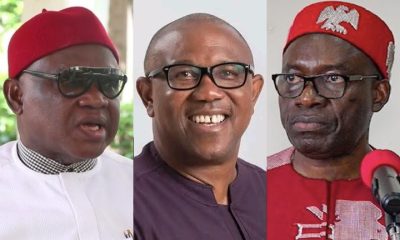
 Featured5 days ago
Featured5 days agoYour Attacks on Peter Obi Are Petty, Stop It! Chekwas Rebukes Soludo
-
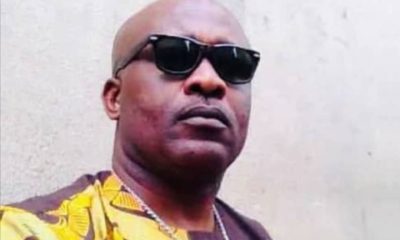
 News4 days ago
News4 days agoTension in Anambra community as senior police officer shoots kinsman dead
Colleagues, others try cover-up; victim's family fights back
-
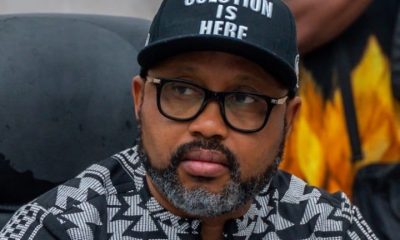
 News7 days ago
News7 days agoAnambra South Bye-Election: APC Chief Rescues Deputy Gov Caught In Vote Buying From Angry Youths
By Chuks Collins, Awka
-

 Celebrity/Entertainment1 day ago
Celebrity/Entertainment1 day agoHow Nigerian TikToker Geh Geh Made ₦45 Million in One Night
-

 News5 days ago
News5 days agoNigerian visa applicants must provide 5-yr social media history — US embassy
-
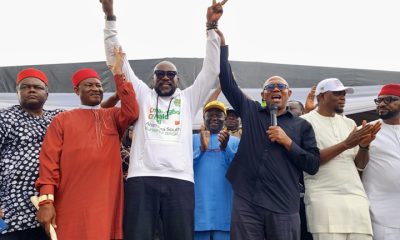
 Analysis6 days ago
Analysis6 days agoSystemic Sabotage: How APC, INEC Colluded To Undermine Amamgbo’s Senatorial Bid
By Arthur Ezechukwu
-

 News3 days ago
News3 days agoTerrorist Organisation: APC, PDP Members in US, UK, France Risk Deportation
-

 Celebrity/Entertainment5 days ago
Celebrity/Entertainment5 days agoWhy single mothers can’t raise boys into proper men — Jim Iyke
-

 News7 days ago
News7 days agoBREAKING: Troops arrest Nigeria’s most wanted terror kingpin
-

 News2 days ago
News2 days agoVandal electrocuted while vandalizing Aba power infrastructure








